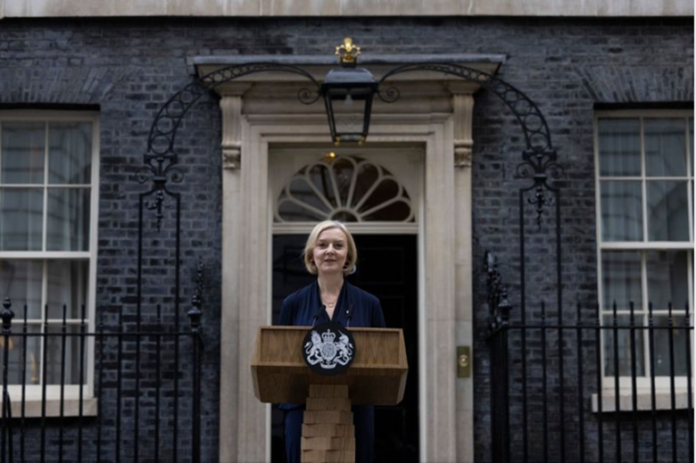By Will DeMartinis
Last month I wrote about Liz Truss taking the reins of Westminster as a fresh Prime Minister for the United Kingdom after the mess of scandals that was the fiery end of former P.M Boris Johnson premiership. I wrote about how Liz Truss’s governmental plans were rough and pretty unknown. I wrote about how her leadership over the U.K and her effects would remain to be seen.
This month, we have those answers, and none of them are good for the now former Prime Minister, as she resigned on October 20th, 2022. Just how Liz Truss’s leadership fell in record time–44 days, the shortest of any U.K Prime Minister in its history–is a tale for the modern political ages.
To start, within days of her taking office, Liz Truss announced her budget plan. The plan called for slashes of U.K taxation across the board, paid for by the government borrowing money. That, coupled with her plan to slash regulations, sent U.K Financial markets spiraling. In a time of record inflation and uncertainty across the global economy, Truss’s economic plan proved even more catastrophic. As the financial markets tumbled, so did the Conservative Party’s poll numbers, which were already poor under the poor leadership of Boris Johnson. The day Liz Truss took over the top job, the polling average (via Politico) placed the Conservative party at a vote share of 31% of the vote, with the opposition Labour party at 42%. At the end of Liz Truss’s tenure, that number had ballooned for the Labour party to 52%, with just 21% of voters suggesting they’d vote for the Conservative Party if an election were held today.
For reference, just in case you still don’t understand just how bad those numbers are for the Conservative party, Tony Blair (The last Labour P.M for the U.K) won his first election in a landslide, 418 seats for the Labour party to just 165 for the Conservatives. The vote totals for that election were 43.2% Labour vs 30.7% for the Conservatives. Using today’s polling numbers, the Conservatives could not just lose to the Labour party, they’d be demolished, with the potential for Labour to hold well over a 100 seat majority and knock off 8 incumbent U.K cabinet ministers.
So, with these numbers in mind, it’s no surprise that Truss would resign. Her leadership stands as a fiery symbol of the divisions between Moderate and Conservative elements in the governing party & just how unstable U.K politics has been since they voted to leave the European Union in 2016. Rishi Sunak, the former finance minister under Boris Johnson, has been elected by his party to be the next P.M, the third in three months. Whether his leadership will be able to glue together the broken pieces of the Conservative party remains to be seen, nor does the answer to whether the U.K needs to have another election altogether (one that Labour would certainly win) come easily. What is known? Liz Truss is one of the most unpopular leaders in recent political history. Her leadership will be a mere footnote in what has been the revolving door of U.K Prime Ministers, with five in the past six years.

